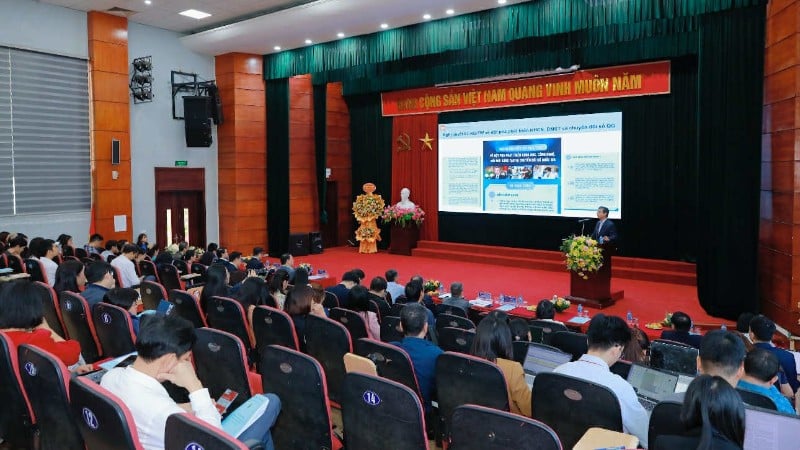
The workshop was organized to create a forum for academic exchange, where experts, scientists and lecturers share views, experiences and propose solutions to promote digital transformation in the field of traditional medicine.
Speaking at the opening of the workshop, Associate Professor, Dr. Nguyen Quoc Huy, Director of the Vietnam Academy of Traditional Medicine, said: The workshop was held in the context that the whole country is strongly implementing Resolution 57-NQ/TW of the Politburo , on "Developing science, technology, innovation and national digital transformation to 2030, vision 2045". For the health sector, this is not only a major policy, but also an inevitable trend of the times. Schools need to innovate training methods, improve the quality of research and apply technology to serve people's health better and better.
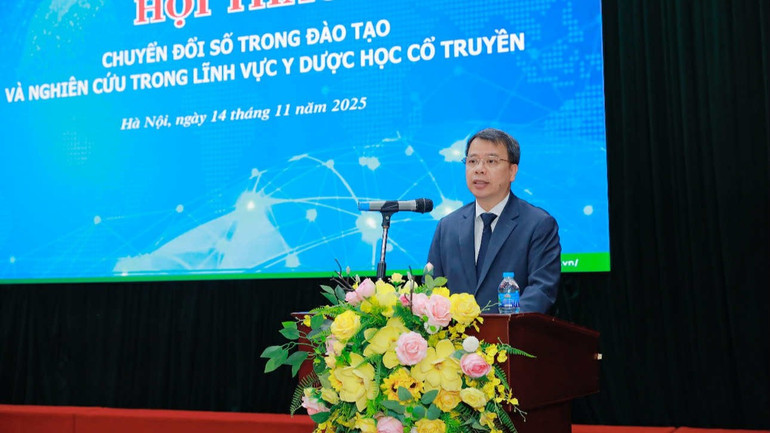
According to Associate Professor, Dr. Nguyen Quoc Huy, the digital transformation process at the Vietnam Academy of Traditional Medicine does not stop at equipping technology but is a comprehensive innovation process, from management, teaching, research to thinking and learning culture. In recent years, the Academy has proactively deployed many digital solutions in training and research.
Specifically, the LMS learning management system, e-learning materials, online question banks, etc. are being strongly developed; data technology and artificial intelligence (AI) models are being gradually applied to the analysis and management of scientific research topics; the team of lecturers and students are gradually adapting to modern teaching and learning methods, flexible between tradition and technology.
Director of the Department of Science, Technology and Training, Ministry of Health , Nguyen Ngo Quang, affirmed that digital transformation is an inevitable trend. This requires each individual in the system to approach, learn, adapt, be flexible and especially develop skills related to digital transformation in the coming time.
One of the important issues to implement digital transformation is infrastructure, information technology infrastructure; database and ethics in the application and use of artificial intelligence (AI) in various fields. Therefore, focusing on forming digital platforms and large, quality medical databases is a priority of the health sector to complete the digital infrastructure, create large medical data warehouses to create a source of correct, sufficient, clean, and live information for digital applications in science, technology and training to exploit and use.
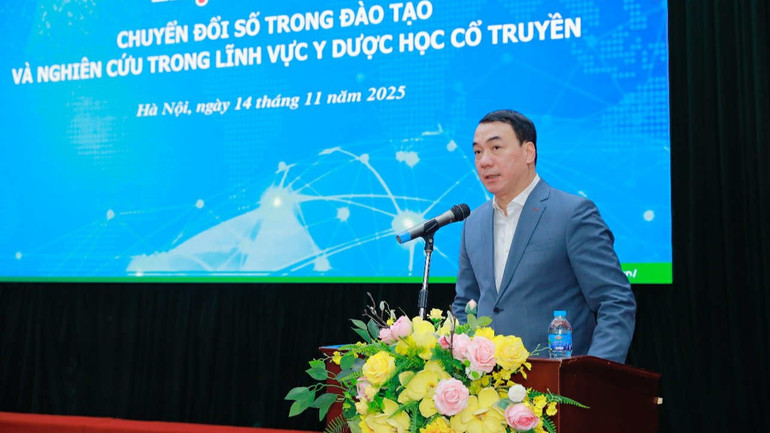
The Ministry of Health also identified the development of high-tech human resources as one of the important pillars and medical and pharmaceutical schools need to participate and lead to support this content, with the goal of creating a new generation of doctors and pharmacists who are knowledgeable about data science and technology, ready to master, integrate and apply smart tools in professional and management work.
Within the framework of the workshop, delegates focused on clarifying the orientation of digital transformation nationally and in the healthcare sector; sharing experiences and models of digital transformation in medical and pharmaceutical training institutions; discussing the application of artificial intelligence, big data and open technology in research and teaching; and proposing solutions and roadmaps for building smart digital academies, suitable for the characteristics of the traditional medicine and pharmaceutical sector.
Mr. Pham Xuan Truong, Project Management Board of Thai Binh University of Medicine and Pharmacy analyzed: Digital transformation in medical education is to redesign the training model using data and digital technology to improve the quality, efficiency, and fairness in training doctors and medical staff. Digital transformation is not only digitizing documents but also changing processes, capacity, and culture based on strategy and quality standards.
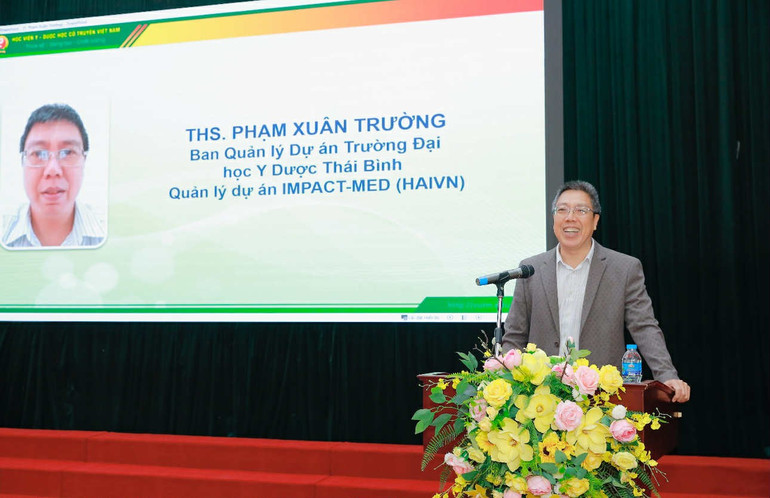
Mr. Pham Xuan Truong also pointed out existing challenges such as purchasing technology first, innovating training later; overloading lecturers; inequality in access. Although the use of artificial intelligence (AI) in medical training has many potential benefits such as: improving the quality of learning, increasing the effectiveness of teaching and evaluation, expanding access to clinical cases..., there are also risks such as: students are too dependent on AI, reducing clinical skills; there may be errors, inaccurate information; medical records and medical images are at risk of being leaked, misused; it can create more inequality in training when facilities with good conditions will apply AI strongly, while others will not...
From a practical implementation perspective, Deputy Head of Information Technology Department (Vietnam Academy of Traditional Medicine), Nguyen Minh Hien, said: In the period of 2025-2027, the Academy will complete the LMS learning management platform to upgrade the learning experience; optimize the user interface; integrate new interactive tools, and at the same time, develop a digital library on traditional medicine that can access documents anytime, anywhere; build a data system of prescriptions, medicinal herbs, and medical records to support research and application of AI/Big Data in analysis, which is the foundation for personalized medicine.
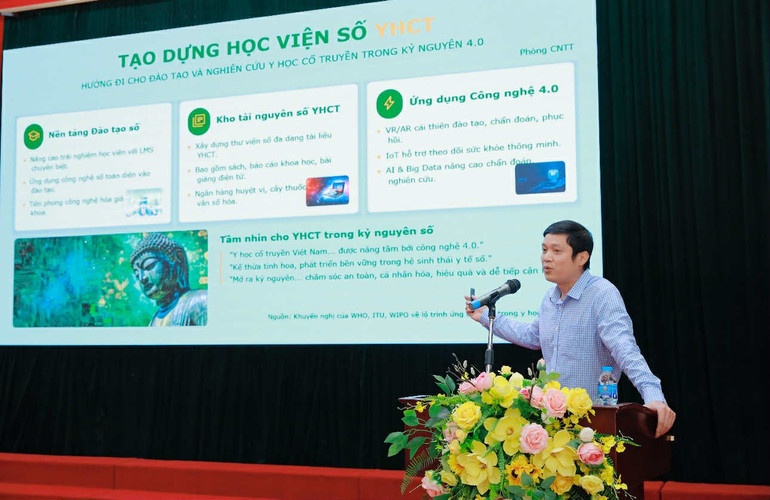
In the period 2028-2030, the Academy aims to use VR/AR for clinical practice to improve accurate diagnosis skills; in-depth analysis of traditional medicine data to predict disease and treatment trends, market research and health communication. After 2030, the Academy will build a comprehensive digital learning platform to access unlimited traditional medicine knowledge; connect students, doctors, researchers and artificial intelligence; promote multidisciplinary cooperation to improve the level of traditional and modern medicine.
The presentations with diverse topics outlined a broad picture of digital transformation in the medical industry. Dr. Nguyen Le Phuc (Department of Science, Technology and Training, Ministry of Health) presented major orientations on scientific and technological breakthroughs, digital transformation and new requirements in medical human resource training. Continuing this topic, Dr. Hoang Viet Anh (Bach Mai Hospital) introduced ways to apply artificial intelligence in diagnosis, treatment and hospital management, thereby clearly illustrating the effectiveness of technology in clinical practice.
With the theme "Digital transformation in training and scientific research in the field of traditional medicine", the workshop focused on key contents, including: updating the orientation of digital transformation nationally and in the health sector; sharing experiences and models of digital transformation in medical and pharmaceutical training institutions; applying AI, big data and open technology in research and teaching; proposing solutions and roadmaps for building a smart digital academy, suitable for the characteristics of traditional medicine.
With the theme "Digital transformation in training and scientific research in the field of traditional medicine", the workshop focused on key contents, including: updating the orientation of digital transformation nationally and in the health sector; sharing experiences and models of digital transformation in medical and pharmaceutical training institutions; applying AI, big data and open technology in research and teaching; proposing solutions and roadmaps for building a smart digital academy, suitable for the characteristics of traditional medicine.
Source: https://nhandan.vn/thuc-day-chuyen-doi-so-trong-dao-tao-va-nghien-cuu-y-duoc-hoc-co-truyen-post923070.html





![[Photo] Unique architecture of the deepest metro station in France](https://vphoto.vietnam.vn/thumb/1200x675/vietnam/resource/IMAGE/2025/11/14/1763107592365_ga-sau-nhat-nuoc-phap-duy-1-6403-jpg.webp)


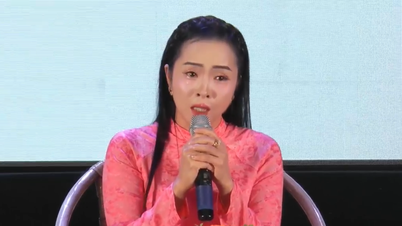

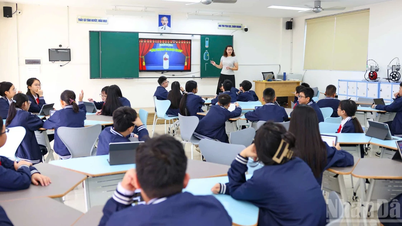
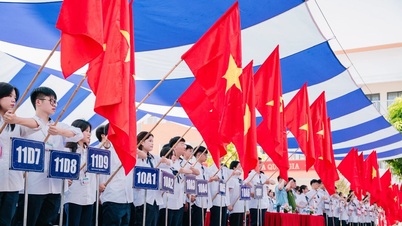



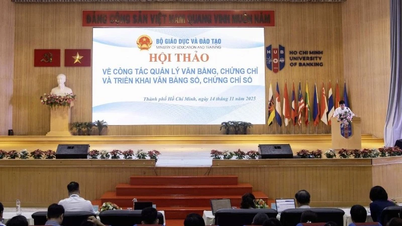





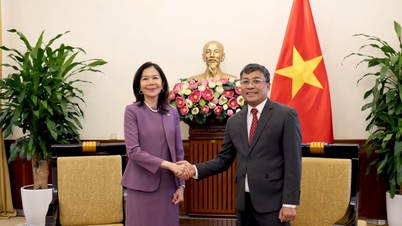

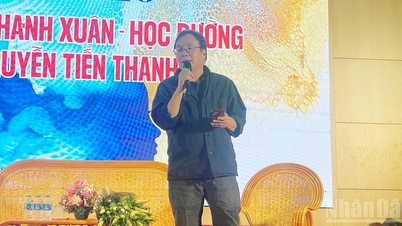
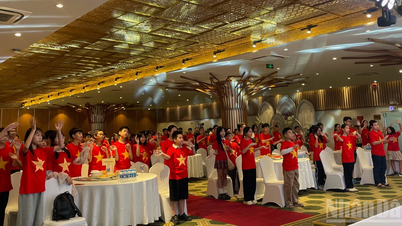
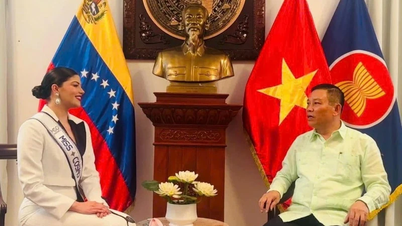
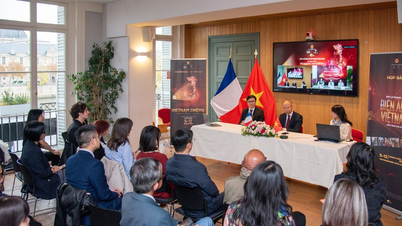
![[Photo] Unique art of painting Tuong masks](https://vphoto.vietnam.vn/thumb/1200x675/vietnam/resource/IMAGE/2025/11/14/1763094089301_ndo_br_1-jpg.webp)
![[Photo] Special class in Tra Linh](https://vphoto.vietnam.vn/thumb/1200x675/vietnam/resource/IMAGE/2025/11/14/1763078485441_ndo_br_lop-hoc-7-jpg.webp)








































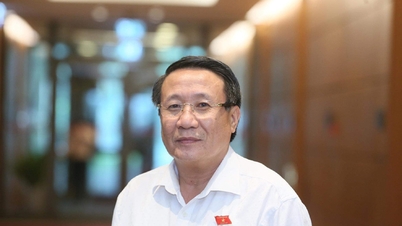

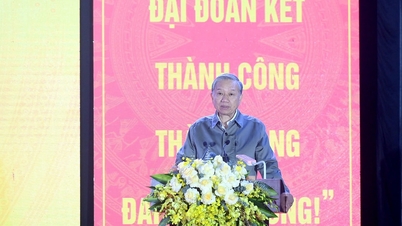



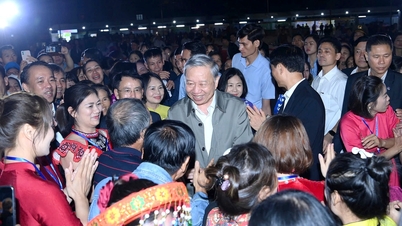
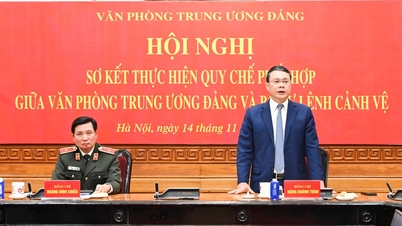


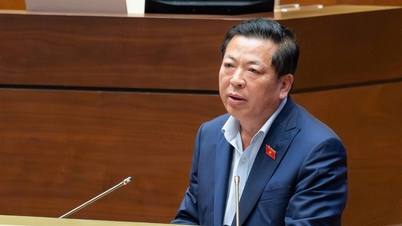





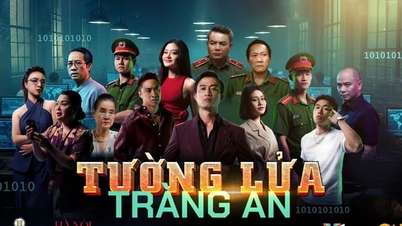















Comment (0)